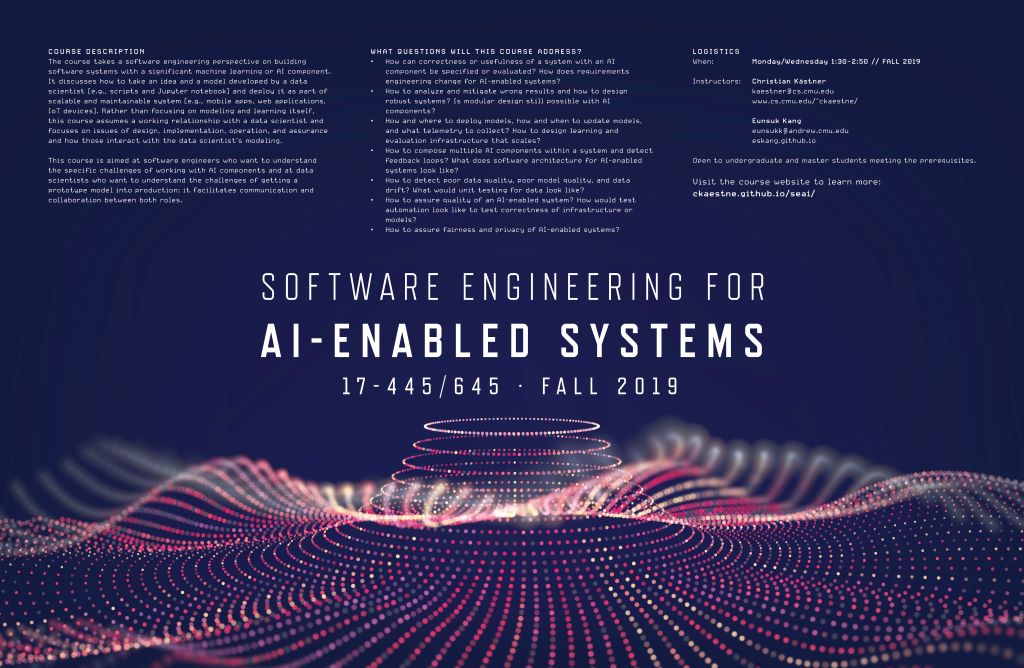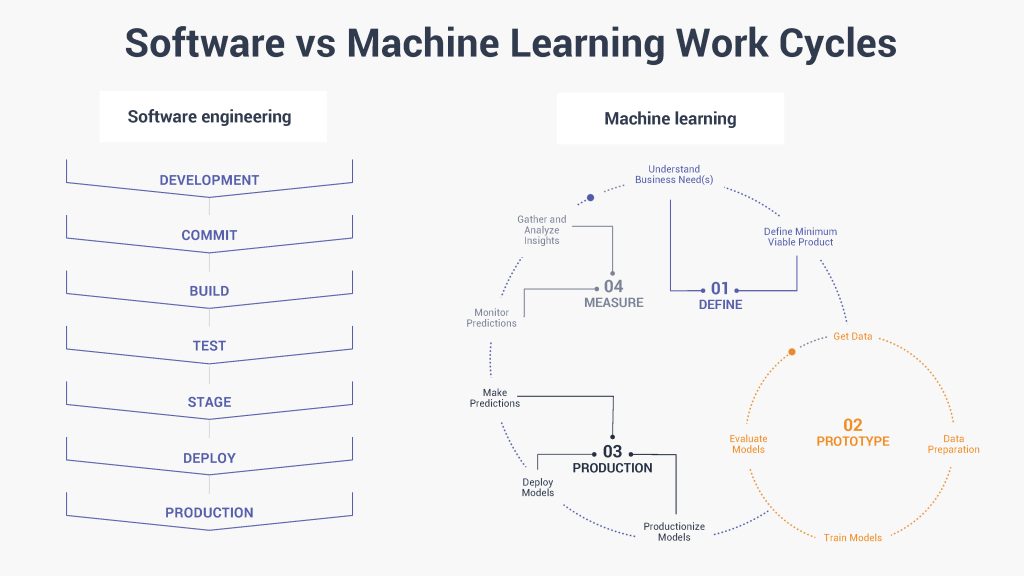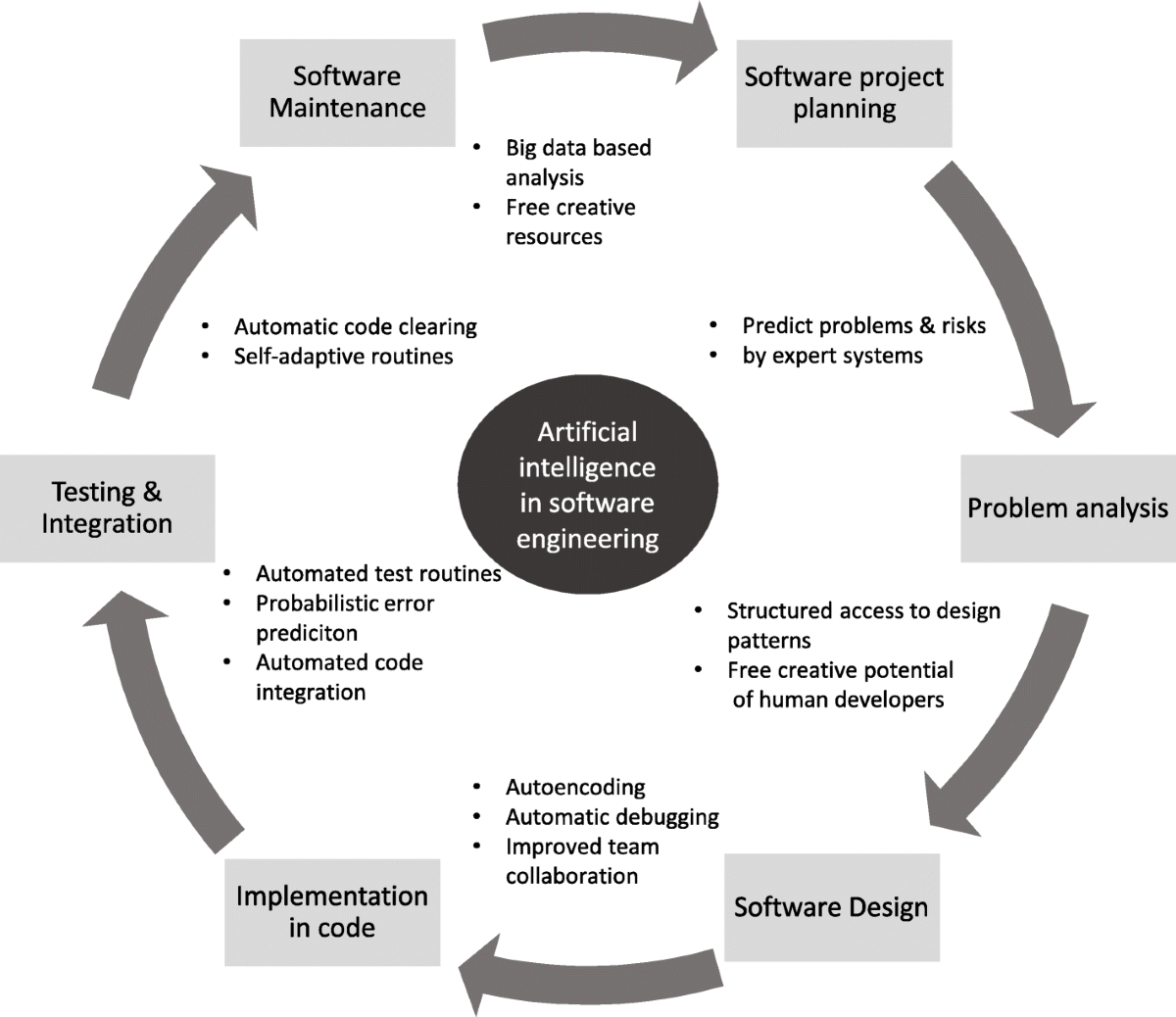All Categories
Featured
Table of Contents
My PhD was the most exhilirating and exhausting time of my life. Unexpectedly I was surrounded by people that can solve tough physics concerns, comprehended quantum mechanics, and might develop intriguing experiments that got released in leading journals. I felt like a charlatan the whole time. I fell in with a good group that urged me to explore things at my very own speed, and I spent the following 7 years discovering a heap of points, the capstone of which was understanding/converting a molecular characteristics loss function (including those shateringly found out analytic derivatives) from FORTRAN to C++, and composing a gradient descent routine straight out of Mathematical Recipes.

I did a 3 year postdoc with little to no maker understanding, just domain-specific biology stuff that I really did not locate interesting, and finally managed to get a task as a computer researcher at a national laboratory. It was a good pivot- I was a principle private investigator, indicating I could obtain my very own grants, write papers, and so on, yet really did not have to instruct classes.
The Greatest Guide To Master's Study Tracks - Duke Electrical & Computer ...
I still didn't "obtain" maker discovering and desired to work someplace that did ML. I attempted to get a task as a SWE at google- underwent the ringer of all the hard inquiries, and eventually obtained denied at the last action (many thanks, Larry Page) and went to benefit a biotech for a year prior to I lastly took care of to obtain hired at Google during the "post-IPO, Google-classic" period, around 2007.
When I reached Google I promptly looked with all the projects doing ML and found that than ads, there truly had not been a lot. There was rephil, and SETI, and SmartASS, none of which appeared even remotely like the ML I was interested in (deep semantic networks). So I went and focused on other stuff- learning the distributed innovation beneath Borg and Giant, and mastering the google3 pile and manufacturing settings, mostly from an SRE viewpoint.

All that time I would certainly spent on maker learning and computer infrastructure ... went to creating systems that filled 80GB hash tables into memory so a mapper could compute a little component of some slope for some variable. Sibyl was actually a dreadful system and I got kicked off the team for telling the leader the best way to do DL was deep neural networks on high performance computer hardware, not mapreduce on cheap linux cluster equipments.
We had the information, the formulas, and the compute, simultaneously. And also better, you didn't need to be within google to make the most of it (other than the big data, and that was altering rapidly). I understand enough of the mathematics, and the infra to finally be an ML Designer.
They are under extreme stress to get results a few percent far better than their partners, and after that when published, pivot to the next-next point. Thats when I developed among my laws: "The best ML versions are distilled from postdoc splits". I saw a few people break down and leave the industry for excellent simply from functioning on super-stressful jobs where they did wonderful work, but only got to parity with a competitor.
This has actually been a succesful pivot for me. What is the ethical of this long story? Imposter syndrome drove me to overcome my imposter syndrome, and in doing so, along the method, I learned what I was going after was not in fact what made me happy. I'm much more pleased puttering about utilizing 5-year-old ML technology like object detectors to boost my microscopic lense's ability to track tardigrades, than I am trying to end up being a renowned researcher who unblocked the difficult troubles of biology.
A Biased View of Aws Certified Machine Learning Engineer – Associate

Hello there world, I am Shadid. I have actually been a Software program Designer for the last 8 years. Although I wanted Machine Understanding and AI in university, I never had the possibility or perseverance to seek that passion. Now, when the ML field grew greatly in 2023, with the most recent innovations in huge language designs, I have a horrible longing for the road not taken.
Scott talks concerning just how he completed a computer system science level just by adhering to MIT educational programs and self studying. I Googled around for self-taught ML Engineers.
Now, I am uncertain whether it is possible to be a self-taught ML designer. The only way to figure it out was to try to attempt it myself. Nevertheless, I am optimistic. I intend on enrolling from open-source courses available online, such as MIT Open Courseware and Coursera.
Machine Learning Devops Engineer - Truths
To be clear, my objective here is not to construct the following groundbreaking design. I just desire to see if I can obtain an interview for a junior-level Equipment Learning or Information Design task after this experiment. This is simply an experiment and I am not trying to shift into a duty in ML.

I intend on journaling about it weekly and documenting every little thing that I research study. Another disclaimer: I am not going back to square one. As I did my undergraduate degree in Computer system Engineering, I comprehend several of the principles required to draw this off. I have strong background understanding of solitary and multivariable calculus, linear algebra, and data, as I took these training courses in college regarding a years ago.
Getting My Machine Learning In Production / Ai Engineering To Work
Nevertheless, I am mosting likely to omit a lot of these courses. I am going to focus mostly on Maker Learning, Deep discovering, and Transformer Style. For the first 4 weeks I am going to concentrate on finishing Artificial intelligence Specialization from Andrew Ng. The objective is to speed run through these very first 3 courses and obtain a solid understanding of the fundamentals.
Now that you have actually seen the program suggestions, right here's a fast guide for your understanding maker learning journey. Initially, we'll touch on the prerequisites for most equipment finding out courses. Advanced programs will certainly call for the adhering to knowledge prior to beginning: Straight AlgebraProbabilityCalculusProgrammingThese are the basic parts of being able to recognize how machine finding out works under the hood.
The very first training course in this listing, Device Knowing by Andrew Ng, contains refreshers on a lot of the math you'll need, however it may be challenging to discover machine understanding and Linear Algebra if you have not taken Linear Algebra before at the same time. If you need to brush up on the mathematics needed, have a look at: I 'd suggest discovering Python considering that the bulk of great ML training courses make use of Python.
The Facts About Certificate In Machine Learning Uncovered
In addition, one more superb Python resource is , which has numerous complimentary Python lessons in their interactive web browser atmosphere. After finding out the prerequisite fundamentals, you can begin to really understand exactly how the algorithms function. There's a base set of formulas in maker discovering that every person need to be acquainted with and have experience making use of.

The programs noted above have essentially all of these with some variant. Understanding exactly how these strategies work and when to utilize them will certainly be critical when handling brand-new tasks. After the basics, some advanced strategies to find out would certainly be: EnsemblesBoostingNeural Networks and Deep LearningThis is simply a beginning, but these algorithms are what you see in several of the most intriguing maker discovering solutions, and they're useful additions to your toolbox.
Understanding equipment discovering online is tough and exceptionally fulfilling. It is essential to keep in mind that just enjoying video clips and taking quizzes does not indicate you're actually discovering the material. You'll discover a lot more if you have a side task you're servicing that uses different data and has various other goals than the program itself.
Google Scholar is always an excellent place to start. Enter search phrases like "artificial intelligence" and "Twitter", or whatever else you want, and struck the little "Develop Alert" link on the entrusted to obtain emails. Make it a weekly practice to review those notifies, check with documents to see if their worth reading, and afterwards dedicate to comprehending what's taking place.
An Unbiased View of Machine Learning Engineer Learning Path
Artificial intelligence is exceptionally satisfying and amazing to find out and explore, and I wish you found a course over that fits your very own trip right into this amazing area. Equipment discovering composes one element of Data Scientific research. If you're also thinking about discovering about stats, visualization, data analysis, and more make sure to have a look at the leading data science training courses, which is an overview that follows a comparable layout to this set.
Latest Posts
How To Optimize Your Resume For Faang Software Engineering Jobs
How To Ace The Software Engineering Interview – Insider Strategies
Best Ai & Machine Learning Courses For Faang Interviews